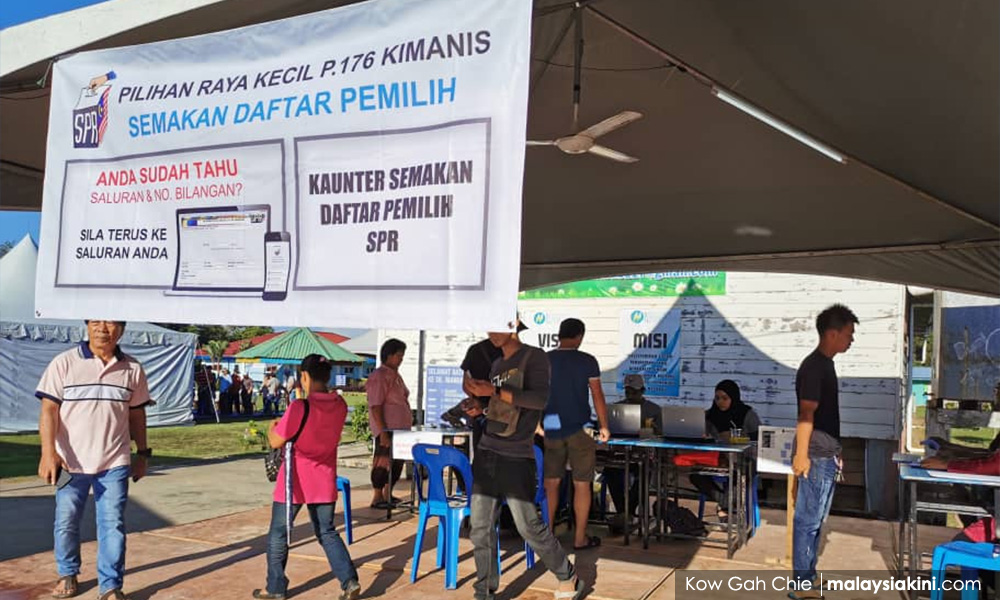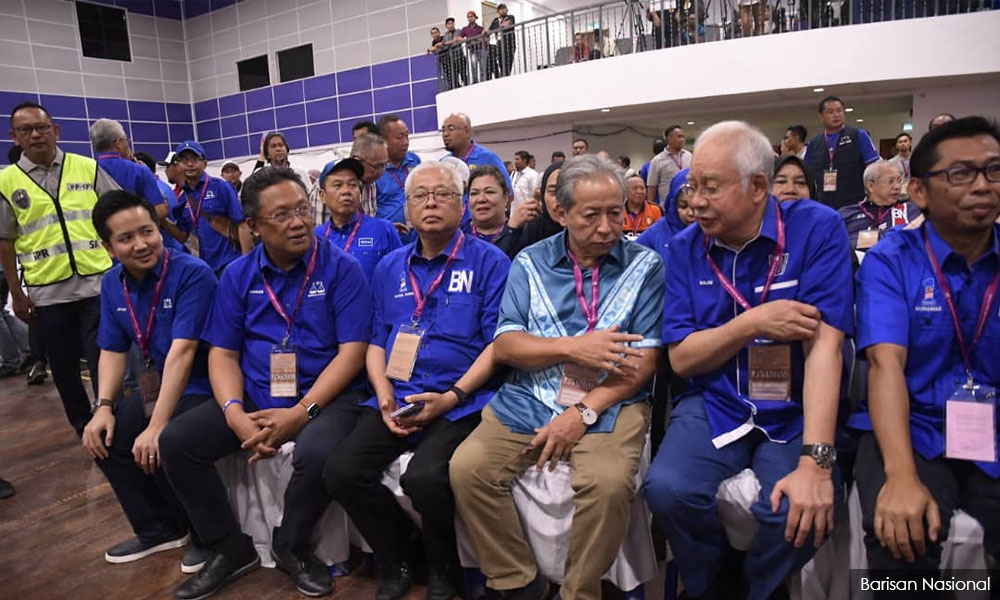
I haven’t heard anyone say anything good about the current ruling government in the past year.
Although the general election manifesto is admittedly not a Bible, breaking promises always leaves a bitter aftertaste in the mouth. It breeds a cycle of doubt, disappointment and distrust.
Initially, when the government breaks a promise, we doubt if the most powerful is listening to the people’s grievances. Then we harvest disappointment when a few promises are broken in a row. Over time, this fosters distrust.
Even though a voter is not too caught up with the manifesto, distrust spreads like wildfire. Before you know it, everyone feels the same way.
All of this came to a boil in the Kimanis by-election.
There are three reasons why Kimanis is not an ordinary by-election. It should serve as a warning to the Pakatan Harapan government that the old ways of doing things will not work.
Five in a row
First, five in a row.
The Kimanis by-election represents the Harapan government’s fifth by-election loss in a row. Under normal circumstances, losing a by-election as a ruling government is embarrassing enough. This is because the vast resources accessible to a ruling government would mean that they have a natural electoral advantage.
To lose not only one, but five by-elections in a row spell trouble for the survival of the government.
MCA president Wee Ka Siong (on right, in photo above) milked this victory and emphasised how this victory was obtained in spite of the government machinery.

We could derive a few inferences from this. One, the government has not deployed effective electoral strategies since the start of the by-elections. The reliance on huge ministerial appearances during the campaign periods, instead of micro-scoping specific concerns of the people in the constituents, was part of the problem.
The simple strategy of throwing money at the contested areas, in the form of assistance and projects, has given poor returns. Harapan has relied on the same strategy of “We are the government”, while the opposition parties have fought each constituency like a key battleground. The results are clear for all to see.
Two, the government and opposition have now entered a new psychological realm. The grassroots volunteers of the government now feel like they are the losing team, while the opposition has grown in morale and motivation.
Nobody likes to be on the losing team. No power is forever. Not winning for five times in a row will have a multiplying effect on reducing Harapan’s chances of victory. No wonder almost all these by-elections were lost by larger margins than before.
The sweetest victory
Second, this is the opposition’s sweetest victory. Kimanis was no ordinary by-election because it was won by a dying Sabah Umno.

When the Election Commission announced Umno’s victory in Kimanis, Bung Moktar Radin (above) and Abdul Rahman Dahlan hugged each other in tears. This was the second time Bung Moktar had teared up in public within the space of three weeks.
Politicians are dramatic people. They may have used tears to elicit sympathy from the public. We are, after all, very quick to forgive. But there is a clear reason why this victory meant something more to both of them.
Rahman Dahlan told the media that Sabah Umno almost died after the 14th general election. Human greed produced a huge exodus of Umno members to Bersatu. Sixteen state representatives, six MPs and 22 division heads flocked to the ruling party, crippling Sabah Umno to its knees.
But Sabah Umno held its line and used everything it had in the toolbox. Its leaders knew that a victory in Kimanis would resuscitate the party, by returning old guards to its fore and convincing its members that they had a fighting chance to govern.
If a party branch that has been reduced to barebones could still win, this should inspire Umno branches in the rest of the country to succeed. This is powerful.
Disconnecting with the people
Third, power and people are like the sky and ground. Governments around the world face downfalls for the same reason: They are blind and deaf to the worries of the people on the ground. The risk of having power is to stay too comfortable in the clouds; disengaged and disinterested in the democratic voices of the people.
After the loss in Kimanis, the Harapan government practised its well-rehearsed template answer. Instead of taking an introspective assessment of the loss, the government has blamed the people for not catching up. The prime minister and ministers said the people had to be more patient for reforms to materialise.

They said that the people are free to pick the corrupt opposition, led by “Bossku” Najib Abdul Razak, if they want to. This implied a lack of moral compass and an unenlightened frame of mind of the voters – totally ignoring the rational dissatisfaction of the people who used the by-elections to protest, to make a point. In fact, many people wanted to protest – Kimanis was the highest turnout of all by-elections.
And this is the most dangerous part of the Kimanis by-election.
Not only had the loss meant that the dissatisfaction against the Harapan government is consistent across the board, but many people would vote for the opposition for reasons other than being racist or corrupt.
If things carry on as usual, a huge portion of the electorate will vote for the opposition – not because they endorse a racist and/or corrupt government – but because the current government is incompetent.
They will vote for the opposition because the economy continued to be sluggish – stagnant wages, expensive houses, horrible jobs, backward infrastructure, the pessimistic outlook for the future – and because all their worries have fallen on deaf ears.
Genuine worries of the people may usher in a government that perpetuates identity politics and extremism – simply because they are still the only credible alternative we have.
This government is in trouble. We are all in trouble.
JAMES CHAI is a legal consultant and researcher working for Invoke, among others. You may reach him at jameschai.mpuk@gmail.com. - Mkini


No comments:
Post a Comment
Note: Only a member of this blog may post a comment.